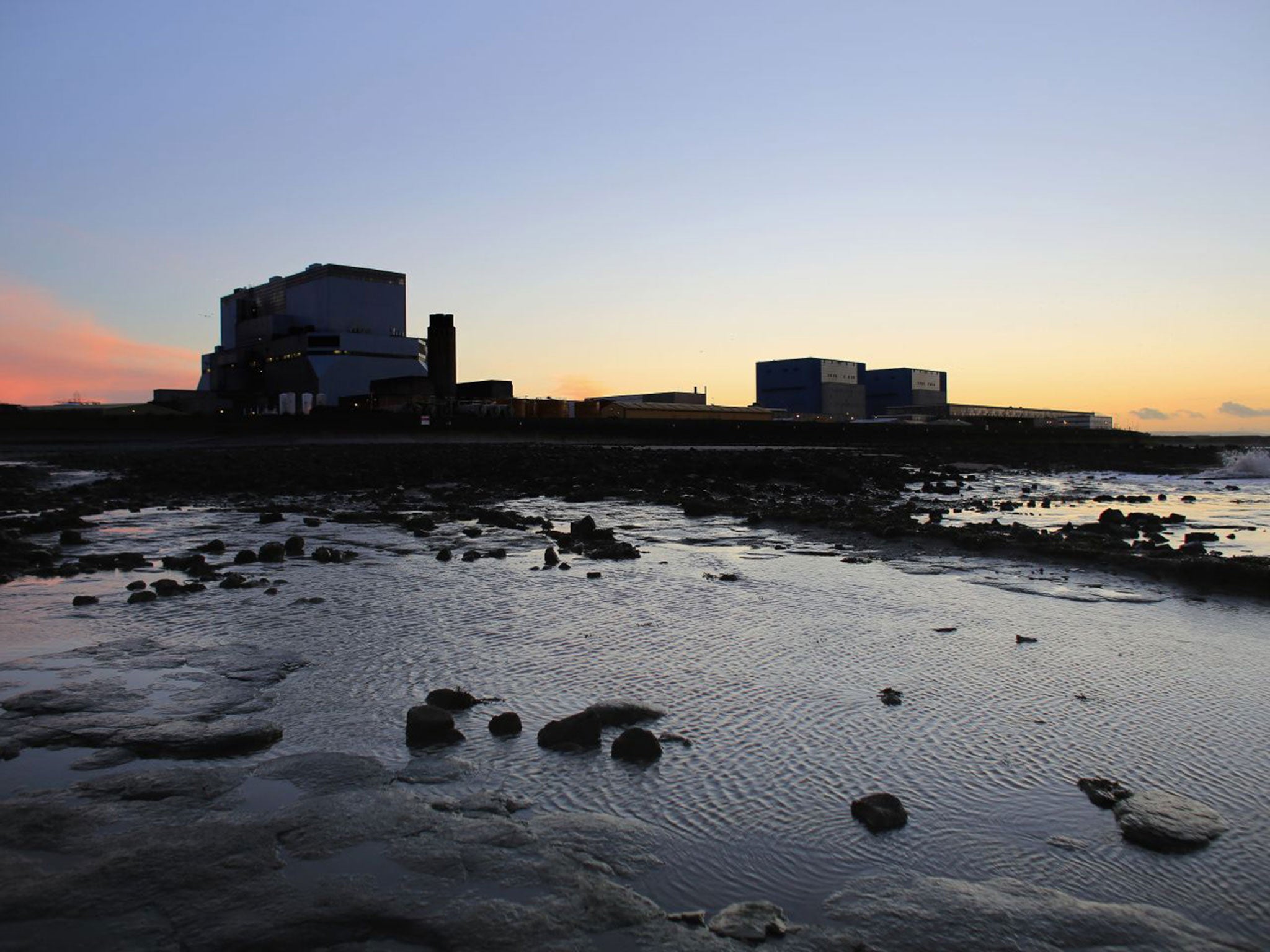Amber Rudd may go nuclear but EDF will take its time on Hinkley Point C
Parliamentary Business: Although charming in person, Ms Rudd has a sharpness to her when she senses a troublesome point

Pity poor Jean-Bernard Lévy, the chief executive of the French power giant EDF. He is going to have some explaining to do the next time he encounters Amber Rudd, our formidable Energy and Climate Change Secretary.
This week, Mr Levy vowed that his board will make a final investment decision on whether to build and run the long-planned Hinkley Point C by the end of the year. At £24.5bn this nuclear power plant in Somerset, which is supposed to herald a new generation of reactors, is a huge commitment – even for a state-backed behemoth like EDF.
But the board was supposed to give us a final decision last month on whether it was willing to risk so much of its balance sheet across the English Channel. In fact, Hinkley Point has been delayed a number of times and was originally supposed to be generating electricity by next year – the concrete is unlikely to start pouring for another three years yet.
And Ms Rudd is sympathetic to the calculated gamble EDF that must make. She told me: “This is a very large project involving large sums of money... and there are always last-minute things where people want to check this and check that. It’s a huge deal and it is a huge commitment.
“I hope they get on with it very soon, but the manner of huge deals means there are always additional things that people want to sign off. They [EDF] are keen to get a final commitment – and we are waiting that enthusiastically.”
The Cabinet minister laughed heartily on using the word “enthusiastically”. More forcefully, Ms Rudd said she “fully expects EDF to go forward” and make that commitment “very shortly”.
When asked if, by this, she meant next month, the high-flying star of the Conservatives’ 2010 intake said: “I certainly hope so.”
Although utterly charming in person, Ms Rudd has a sharpness to her when she senses a troublesome question or point. I mentioned she was lucky not to have been energy secretary when EDF and the Government were negotiating the strike price (that dubious honour fell to her Liberal Democrat predecessor, Ed Davey), which is the minimum sum the state will guarantee to pay for electricity generated at Hinkley. She snapped back: “Oh, you’ve got something to say about that have you?”
Er… I was only going to say that it was a difficult concept to explain to readers and, rather undermined by this column, I hoped not to have to write about it again any time soon.
Anyway I get the impression that when Ms Rudd says, “I certainly hope” EDF will make a decision soon, she means: “Jolly well get on with it, Jean-Bernard”.
Instead, the 60-year-old said at a press conference in Brussels this week: “We are working actively today with our Chinese partners [who took a one-third stake in the project last year] to complete the discussion that we are having and announce a final investment decision very soon.”
So, what’s the difference between “very shortly” and “very soon”? A good several months, as it turns out. Asked if he meant a decision would be taken this year, he happily grabbed the longer timeframe: “If in my thinking ‘very soon’ did not mean this year, I would be disingenuous.”
Of course, this year could mean next month, but it won’t. Any chief executive with the weight of the state on his or her shoulders would take the maximum time necessary to check out the deal – and, whatever his claims to the contrary, Mr Lévy will surely want to wait until the result of the European Union In/Out referendum in June.
No one really understands what Brexit will mean and exactly what our trade relationship will be with the rest of the EU as a result. Very possibly it will make no difference in terms of EDF investing in a power plant on the edge of England, but why not wait a few months to make sure that Anglo-French relations are not permanently damaged?
Moreover, EDF has already cut its dividend and capital expenditure this year due to some financial difficulties. Hinkley might be a cash cow for decades to come, but that upfront cost of building it could not come at a much worse time.
EDF has also announced this month that it will extend the life of four of its eight existing British nuclear reactors, with Heysham 2 near Lancaster and Torness in East Lothian now staying open for seven extra years to 2030. Heysham 1 and Hartlepool got an additional five years, meaning they will still be heating homes until 2024.
Even though Britain’s energy gap is still widening and deepening to a chasm, it could be argued that this also buys EDF a little time. With worries easing over future nuclear electricity generation, a decision by next month appears to be less of a necessity and any time this year becomes more palatable.
Ms Rudd, I fear, will have to wait longer than a month before this interminable decision is finally confirmed.
Mr Lévy is doing the right thing by his company, but I suspect he will suffer far more of Ms Rudd’s prickly side than I only very briefly endured.
Join our commenting forum
Join thought-provoking conversations, follow other Independent readers and see their replies
Comments